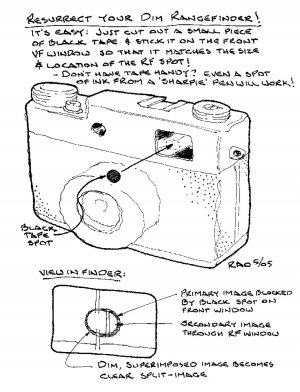lotech
Member
Hi there,
I just received the lovely Aires 35 III C from an auction, it is near mint everything worked fine. It got a very bright viewfinder with automatic parallax correction, the only problem I have is the focusing patch is not clear enough. It lacks contrast, compare to my Soviet FED 2 it is day and night ! Although the FED 2 is few stops darker on the viewfinder, the focusing patch is super clear easy to use in any lighting condition, I don't know how they did that. I wonder if anyone actually own this camera can share the experience using it, and if any tricks to improve the focusing, thanks !
I just received the lovely Aires 35 III C from an auction, it is near mint everything worked fine. It got a very bright viewfinder with automatic parallax correction, the only problem I have is the focusing patch is not clear enough. It lacks contrast, compare to my Soviet FED 2 it is day and night ! Although the FED 2 is few stops darker on the viewfinder, the focusing patch is super clear easy to use in any lighting condition, I don't know how they did that. I wonder if anyone actually own this camera can share the experience using it, and if any tricks to improve the focusing, thanks !




